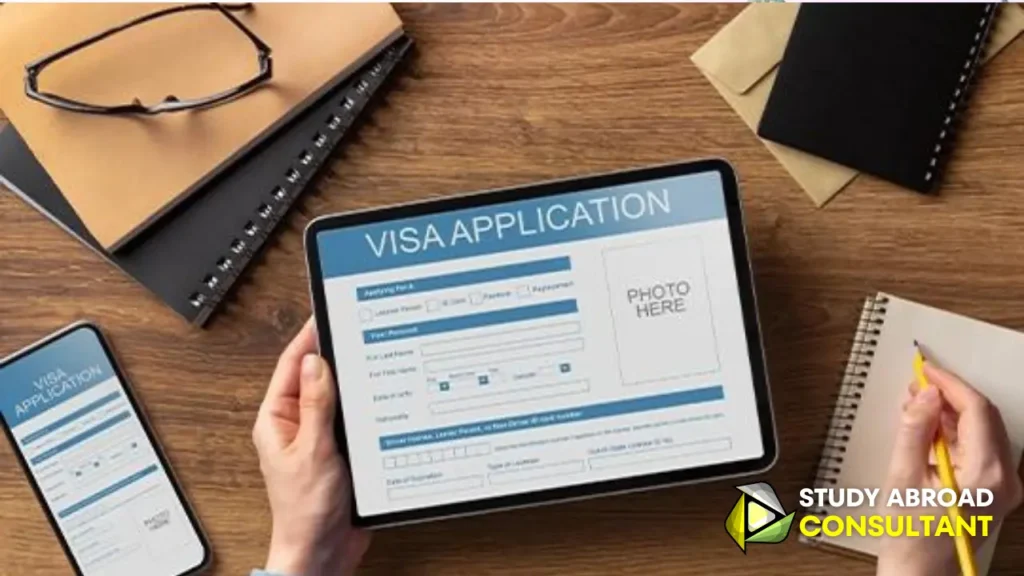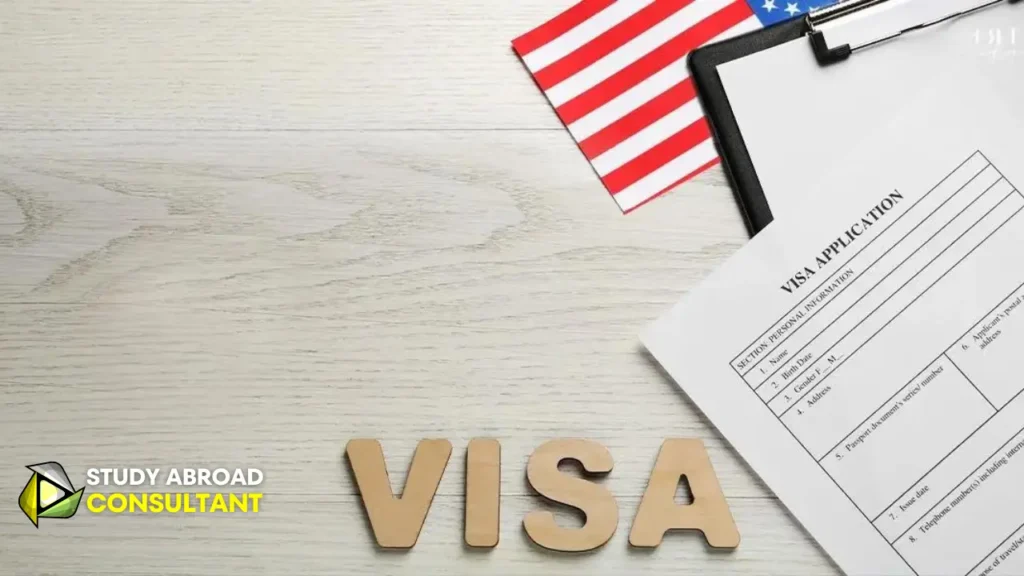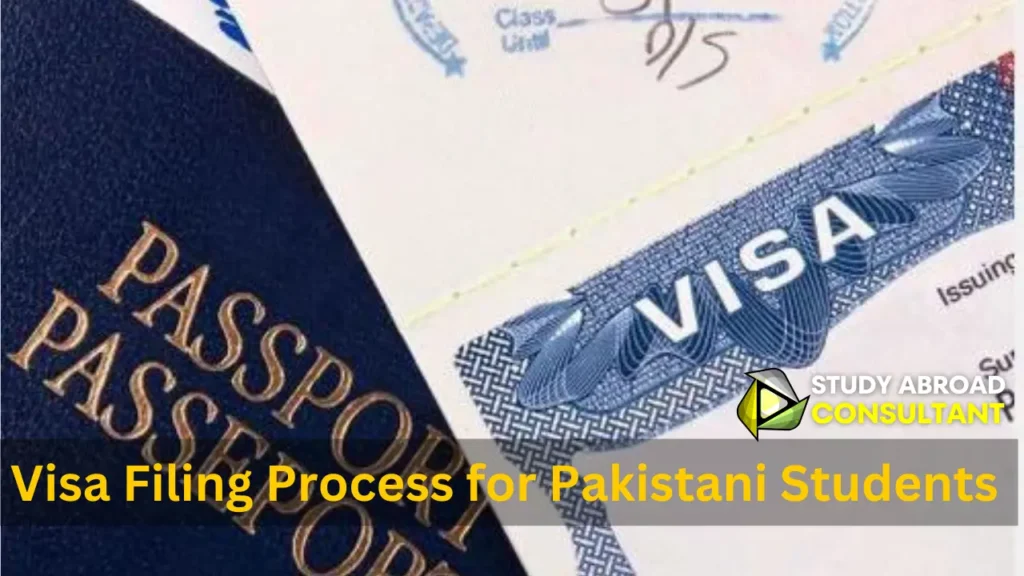Navigating the visa filing process can be one of the most daunting aspects of planning to study abroad. For Pakistani students, understanding the intricacies of this process is crucial for a successful transition to studying in a foreign country. This comprehensive guide will walk you through the visa filing process step-by-step, ensuring that you are well-prepared and informed.
Understanding the Visa Requirements
The first step in the visa filing process is to thoroughly understand the specific visa requirements of the country you wish to study in. Different countries have varying criteria and procedures for issuing student visas. Here are some common requirements that most countries have:
- Acceptance Letter: You must have an official acceptance letter from a recognized educational institution in the host country.
- Financial Proof: Demonstrating that you have sufficient funds to cover tuition fees, living expenses, and other costs associated with studying abroad.
- Health Insurance: Many countries require international students to have health insurance that covers them during their stay.
- Language Proficiency: Proof of proficiency in the language of instruction, usually demonstrated through standardized tests like IELTS or TOEFL.
- Valid Passport: Your passport must be valid for the entire duration of your stay abroad.
Step-by-Step Guide to the Visa Filing Process
1. Research and Preparation
Before you begin the visa filing process, conduct thorough research on the visa requirements of your chosen destination. Visit the official embassy or consulate website of the host country to get accurate and up-to-date information.
2. Obtain an Acceptance Letter
You need an official acceptance letter from the educational institution you plan to attend for visa filing. This letter is a critical document for your visa application, as it confirms your enrollment in a recognized program.
3. Financial Documentation
Most countries require proof that you can financially support yourself during your stay while visa filing. This may include:
- Bank statements
- Scholarship letters
- Financial affidavits
- Sponsorship letters
Ensure that these documents meet the specific requirements of the host country.
4. Health Insurance
Purchase health insurance that meets the requirements of the host country. Some universities offer their own health insurance plans for international students, while others may accept private insurance.
5. Language Proficiency Test
If the language of instruction is not your native language, you will likely need to provide proof of language proficiency. Common tests include:
- IELTS (International English Language Testing System)
- TOEFL (Test of English as a Foreign Language)
Prepare for and take the required language proficiency test well in advance.

6. Visa Application Form
Complete the visa application form accurately and honestly. Forms can usually be downloaded from the embassy or consulate website of the host country. Be meticulous in providing all required information.
7. Gather Supporting Documents
Compile all necessary supporting documents, which may include:
- Passport-sized photographs
- Academic transcripts and certificates
- Proof of accommodation
- Medical examination reports (if required)
- Police clearance certificate
8. Schedule a Visa Appointment
Schedule an appointment at the embassy or consulate of the host country. Some countries allow you to schedule appointments online, while others may require you to call or visit in person.
9. Attend the Visa Interview
Prepare for the visa interview by reviewing common questions and having all your documents organized. Dress professionally and be punctual. During the interview, answer questions confidently and honestly.
10. Pay the Visa Fee
Pay the required visa application fee. The amount varies depending on the country and type of visa. Keep the receipt as proof of payment.
11. Submit Your Application
Submit your completed visa application form along with all supporting documents to the embassy or consulate. Ensure that you have copies of all documents for your records.
12. Track Your Application
After submission, you can often track the status of your visa application online. Processing times vary, so be patient and avoid making travel arrangements until your visa is approved.
Country-Specific Visa Filing Processes
1. United States
For Pakistani students wishing to study in the United States, the visa filing process involves obtaining an F-1 student visa. Here are the key steps:
- SEVIS Fee: Pay the SEVIS (Student and Exchange Visitor Information System) fee and obtain the I-20 form from your U.S. educational institution.
- DS-160 Form: Complete the DS-160 online non-immigrant visa application form.
- Visa Interview: Schedule and attend a visa interview at the U.S. Embassy. Bring your I-20 form, financial documents, and acceptance letter.

2. United Kingdom
Pakistani students looking to study in the United Kingdom need to apply for a Tier 4 (General) student visa:
- CAS Number: Obtain a Confirmation of Acceptance for Studies (CAS) number from your UK university.
- Visa Application: Complete the Tier 4 visa application form online.
- Biometric Appointment: Attend a biometric appointment to provide fingerprints and photographs.
- Documents: Submit your application along with supporting documents, including financial proof and CAS.
3. Canada
For studying in Canada, Pakistani students need a study permit:
- Letter of Acceptance: Obtain an acceptance letter from a designated learning institution in Canada.
- Online Application: Apply for a study permit online through the Immigration, Refugees and Citizenship Canada (IRCC) website.
- Biometrics and Medical Exam: Provide biometrics and undergo a medical examination if required.
- Proof of Funds: Show proof of sufficient funds to cover tuition, living expenses, and return transportation.
4. Australia
To study in Australia, Pakistani students must apply for a Student Visa (subclass 500):
- CoE: Obtain a Confirmation of Enrollment (CoE) from an Australian educational institution.
- ImmiAccount: Create an account on the Australian immigration website and complete the visa application.
- Health Insurance: Purchase Overseas Student Health Cover (OSHC).
- Genuine Temporary Entrant: Provide evidence that you intend to return to Pakistan after completing your studies.
Tips for a Successful Visa Application
1. Start Early
Begin the visa filing process as soon as you receive your acceptance letter. This will give you ample time to gather documents and address any issues that may arise.
2. Be Organized
Keep all your documents in order and make copies of everything. This will help you stay organized and avoid last-minute stress.
3. Be Honest
Provide accurate and truthful information on your application form and during the visa interview. Any discrepancies can lead to delays or denial of your visa.
4. Seek Assistance
If you are unsure about any part of the visa filing process, seek assistance from the educational institution, visa consultants, or the embassy. They can provide valuable guidance and support.
5. Stay Informed
Keep yourself updated on any changes in visa filing regulations and requirements. Visa policies can change, and staying informed will help you avoid any surprises.
Conclusion
The visa filing process for Pakistani students can be complex, but with careful planning and preparation, it is manageable. Understanding the requirements, gathering the necessary documents, and following the step-by-step guide will increase your chances of a successful visa application. Remember, each country has its own specific procedures, so thorough research and attention to detail are key. By staying organized and informed, you can embark on your educational journey abroad with confidence.
Also Read : Application Process for Study Abroad
FAQs about the Visa Filing Process for Pakistani Students
1. What documents are required for the visa filing process?
The documents required for visa filing typically include:
- Acceptance letter from a recognized educational institution
- Valid passport
- Completed visa application form
- Passport-sized photographs
- Financial proof (bank statements, scholarship letters, sponsorship affidavits)
- Proof of health insurance
- Language proficiency test scores (e.g., IELTS, TOEFL)
- Academic transcripts and certificates
- Proof of accommodation
- Medical examination reports (if required)
- Police clearance certificate
2. How early should I start the visa application process?
It is recommended to start the visa application process at least 3-6 months before your intended departure date. This allows ample time to gather required documents, schedule appointments, and address any potential issues.
3. What is the SEVIS fee for studying in the United States?
The SEVIS (Student and Exchange Visitor Information System) fee is a mandatory fee for students applying for an F-1 visa to study in the United States. The fee is currently $350 and must be paid before scheduling a visa interview.
4. How do I prove financial stability for my visa filing?
You can prove financial stability by providing:
- Bank statements showing sufficient funds
- Scholarship award letters
- Sponsorship affidavits from family or organizations
- Financial affidavits
5. Do I need to purchase health insurance before visa filing?
Yes, many countries require proof of health insurance that covers you during your stay. Check the specific requirements of your host country and purchase insurance accordingly.
6. What language proficiency tests are commonly accepted?
The most commonly accepted language proficiency tests are:
- IELTS (International English Language Testing System)
- TOEFL (Test of English as a Foreign Language)
Some countries may accept other language proficiency tests based on the language of instruction.
7. How do I schedule a visa appointment?
You can schedule a visa appointment through the embassy or consulate of the host country. Many countries offer online scheduling systems, while others may require you to call or visit in person.
8. What should I expect during the visa interview?
During the visa interview, you will be asked about your academic plans, financial situation, and intentions to return to Pakistan after completing your studies. Be prepared to answer questions confidently and provide supporting documents.
9. How long does it take to process a visa filing application?
Visa processing times vary by country and can range from a few weeks to several months. It is important to apply early and check the processing times for your specific country.
10. Can I work while studying abroad?
Many countries allow international students to work part-time while studying. However, the regulations and permitted hours vary by country. Check the specific work policies of your host country.
11. What is a CAS number for studying in the United Kingdom?
A CAS (Confirmation of Acceptance for Studies) number is issued by a UK university and is required for applying for a Tier 4 (General) student visa. The CAS number confirms your acceptance into a program and is used to complete your visa application.
12. What should I do if my visa application is denied?
If your visa application is denied, you should:
- Review the denial letter to understand the reasons for the denial
- Address the issues mentioned in the denial letter
- Consider reapplying with additional supporting documents or seek advice from a visa consultant
13. What is the Genuine Temporary Entrant (GTE) requirement for studying in Australia?
The GTE requirement is an Australian immigration criterion that assesses whether a student genuinely intends to stay in Australia temporarily for the purpose of study. You must provide evidence of your intent to return to Pakistan after completing your studies.
14. How can I track my visa application status?
Many embassies and consulates offer online tracking systems where you can check the status of your visa application using a tracking number or reference code provided at the time of submission.
15. What should I do upon arrival in the host country?
Upon arrival, you should:
- Register with local authorities if required
- Attend the university’s orientation program
- Open a local bank account
- Familiarize yourself with the campus and local area
- Get involved in campus activities and student organizations



